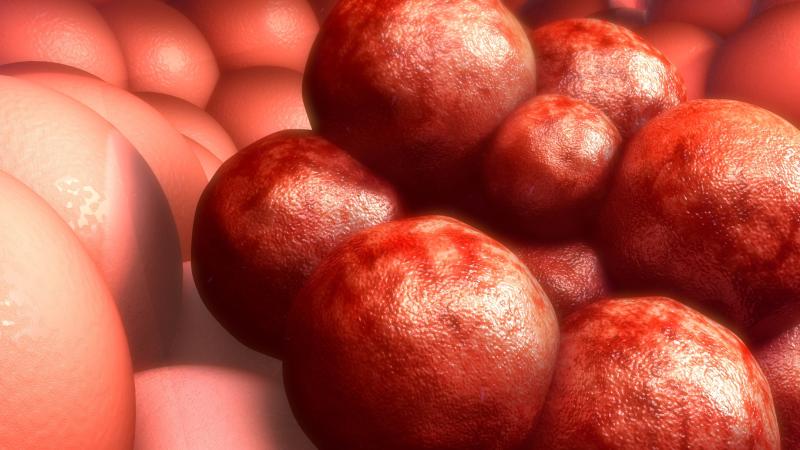
Treatment with ramucirumab plus emibetuzumab is safe and exerts cytostatic antitumour activity, especially in patients with advanced hepatocellular carcinoma (HCC), according to the results of a phase IB/II trial.
The trial involved six patients in the dose-escalation phase (IB; three at each of the two dose levels) and 91 patients in the four tumour-specific expansion cohorts: gastric or gastroesophageal junction adenocarcinoma (GEJ; n=16), HCC (n=45), renal cell carcinoma (RCC; n=15) and nonsmall cell lung cancer (n=15). Emibetuzumab was administered at either 750 or 2,000 mg flat dosing, while ramucirumab was given at 8 mg/kg every 2 weeks.
Primary objectives were to determine the recommended phase II dose and to evaluate antitumour activity. Secondary objectives included safety, pharmacokinetics and immunogenicity. Tumoural MET expression was explored by immunohistochemistry (IHC).
Emibetuzumab exposures were consistent in previous studies with no apparent drug–drug interactions. Five partial responses (5.2 percent) occurred across all tumour types. Antitumour activity was greatest in HCC, with an overall response rate of 6.7 percent, disease control rate of 60 percent, and progression free survival (PFS) of 5.42 months (95 percent CI, 1.64–8.12).
Of note, PFS was threefold higher in HCC with high vs low MET expression (8.1 vs 2.8 months).
There were no dose-limiting toxicities documented. Common adverse events were mostly mild or moderate in severity and included fatigue (36.1 percent), peripheral oedema (28.9 percent) and nausea (14.4 percent).
The findings indicate that MET expression may help aid in selecting patients who will benefit most from this combination treatment in select tumour types, according to the researchers.